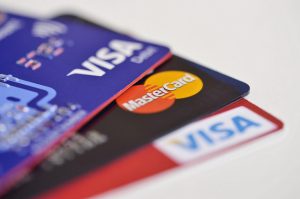If you are facing a money problem, and there are several measures you can take towards recovery.
By: Phoenix Lee/
These steps will put you back on track, but the journey from a money problem will be long. But as Confucius said “A journey of a thousand miles begins with a single step.”
1. Empower Yourself
The first and the hardest thing to do when faced with a money problem, is to recognise that you are in a bad financial situation and you have to consciously decide to do something about it.
Table of Contents
Arm yourself with knowledge about money, so that you can learn to master it. There are a lot of good books, blogs, and web sites that you can peruse to build your knowledge. I recommend this short article on wealth building.
2. Stop Carrying Credit Cards
Sometimes the temptation to use these plastic cards is just too great — it is so convenient, isn’t it? A good way to stop yourself from using them is not to carry them around. Carry just enough cash for whatever you have planned for the day. This will force you to think about your spending habits, and prevent you from buying on impulse. If you manage to clear your credit card debt, you can reward yourself by keeping one in your wallet for emergencies.

3. Consolidate Your and Pay Down Your Debt
If you owe money on several credit cards, it is time to make phone calls. Call your credit card companies and ask them to lower the interest rate. If the customer service representative refuses, hang up and call back again — another person may be more helpful.
While on the phone, ask if they would offer you a better interest rate and waive fees if you transfer all your credit card balances to them. Do not forget to review the fine print carefully – e.g., how long does this better rate last? What is the catch?, etc. You do not want to be surprise by a higher rate 3 months down the road.
While you are going through this phone exercise, make a list of all your credit cards. For each write down the current balance, interest rate, negotiated interest rate, balance transfer fee, and any other note. You will want to come back to this later.
Lastly, ask different financial institutions to see if they would offer you a personal loan. If the rate is good, you can use this money to pay off balances on credit cards with higher interest rates.
Once you have your list, you can do the following:
- Transfer balances from high interest to low interest cards
- Pay off the balance with highest interest rate using your money, or money you borrowed; while paying the minimum on all other cards
Remember, to put your credit cards away until you get on top of your money problems.
https://www.icompareloan.com/resources/emergency-personal-loans/
4. Hit the Pause Button on Spending
Only buy the minimum you need to survive — e.g., food, medicine, transportation, etc. — and do not stock up. Opt for less expensive items over more expensive ones, and buy used instead of new when you can.
For electronics, always wait until the first price cut before you buy. For all other stuff, do not buy anything the moment you want it, wait 1 month and see what happens. If you still want it then, may be it is worth your money.
5. Always Have a Shopping List Handy
Always make a shopping list before you go to the store, and do not be tempted while you are there. Walk straight to the items that you want and go through your list as fast as I can. The theory for this is, if you did not put it on your list, it cannot be that important.
If you do this, you can save a decent amount of money each week which will contribute towards you overcoming your money problems.
https://www.icompareloan.com/resources/personal-loans-best-advice/
6. Spend Your Free Time Away from the Mall
It is nice and cool at the mall. You get to look at other people, and play with all the cool gadgets. But spending your free time at the mall is a terrible way to get out of a money problem. Instead, spend your time on other activities like walking in the park, riding your bicycle, reading books, reading stuff on the Net, watching television and old online videos, just to name a few.
7. Save $20 a Week for Rainy Day
Even if you are tempted to use every last dollar to pay off your debt, you should pull out $20 each week. Most importantly, do not use the money once you saved it. After 1 year, you will have your first $1,000 of emergency fund.
8. Update Your Resume and Post It on the Job Search Sites
When was the last time you asked your boss for a raise or for a promotion? When was the last time you update your resume? The time is NOW. Update your resume and post it on job search sites. While you are there, look around and see what employers are looking for. May be it is time to update your knowledge and skills. A promotion with pay raise, or a new job with better salaries will be a great help for you to overcome your money problems.
How to Secure a Personal Loan Quickly
If you have a money problem and are searching for a personal loan to expand your business, the loan consultants at iCompareLoan can set you up on a path that can get you a it in a quick and seamless manner. Our loan consultants have close links with the best lenders in town and can help you compare various loans and settle for a package that best suits your needs. Find out money saving tips here.
Our Affordability Tools help you make better property buying decisions. iCompareLoan Calculators help you ascertain the fair value of a property and find properties below market value in Singapore.
If you are looking for a new home loan or to refinance, our Mortgage brokers can help you get everything right from calculating mortgage repayment, comparing interest rates all through to securing the best home loans in Singapore. And the good thing is that all our services are free of charge. So it’s all worth it to secure a loan through us for your business expansion needs.
Contact us for advice on a new home loan.
Contact us for home loan or refinancing advice.






